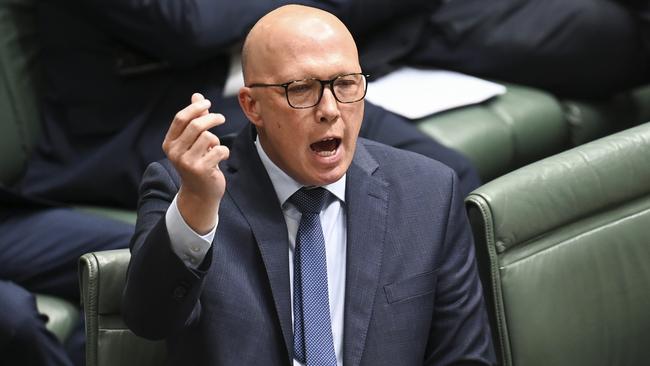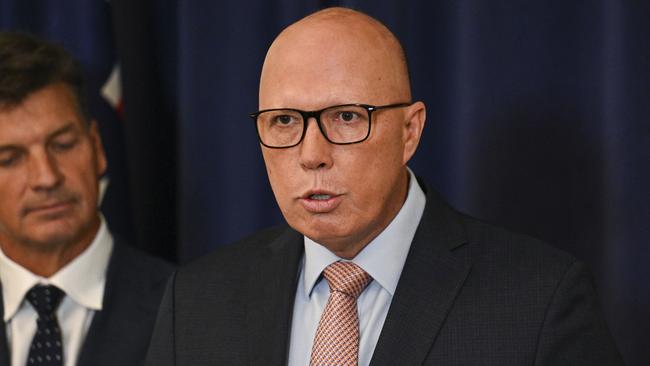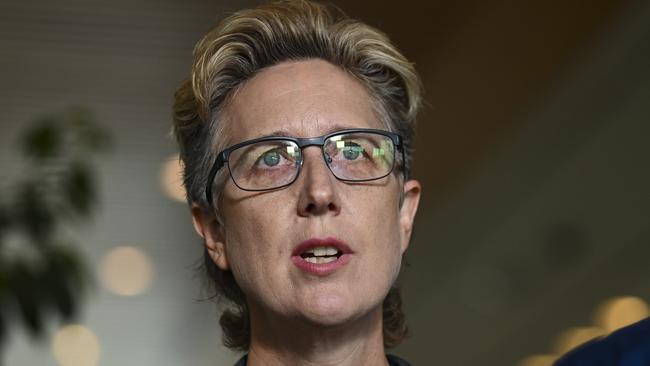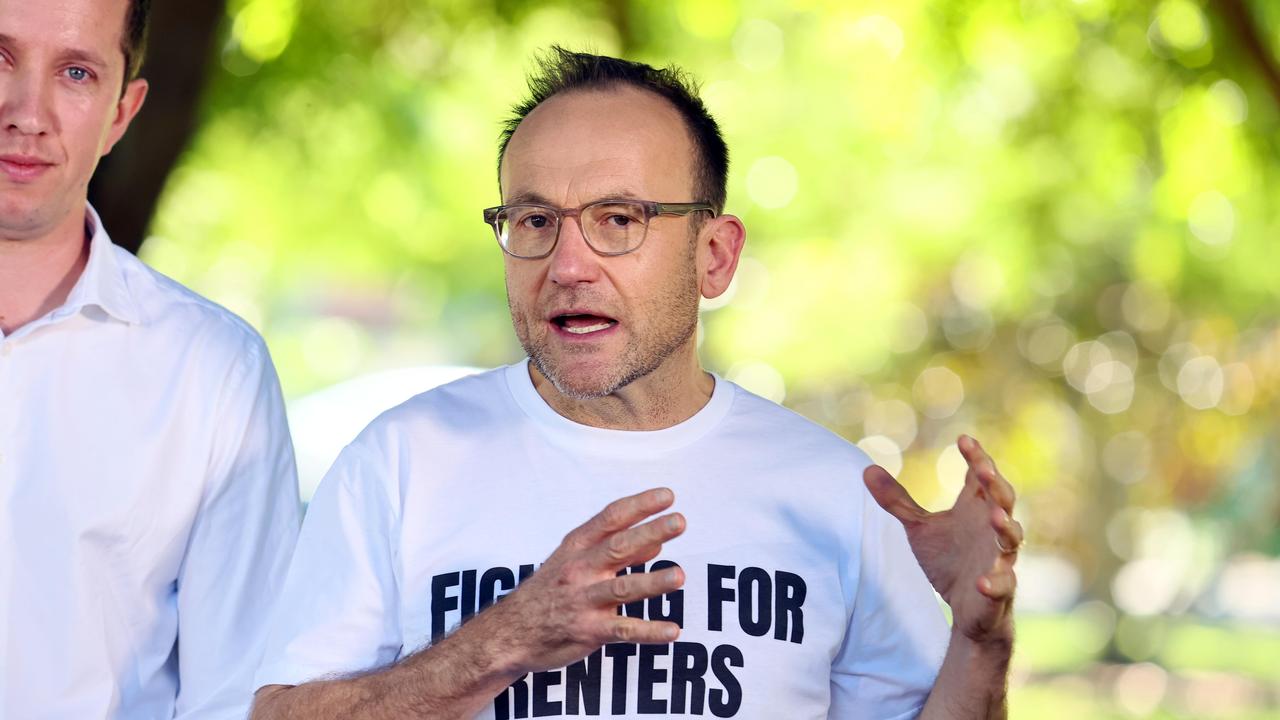‘Right to disconnect laws will kill flexibility’: Business
Business leaders say the right to disconnect laws will kill flexibility, as Peter Dutton vowed to repeal them if the Coalition wins the next election.

Bosses are warning they will be forced to end flexible working arrangements that allow employees to leave early to pick up children or attend appointments during work hours, when the controversial new right to disconnect laws come into effect.
As Peter Dutton vowed to take the right to disconnect laws all the way to the next election, business leaders said there was “a great deal of uncertainty” about how the laws would operate, given bosses maintain the right to punish a worker who does not respond to out-of-hours contact under a vague “unreasonable” refusal provision.
The Opposition Leader on Sunday said he would repeal the reform if he were elected and labelled it an anti-productivity policy “outsourced from the Greens”, while Anthony Albanese accused Mr Dutton of wanting to make Australians “work more for less”.
Employers say the rules will overwhelmingly impact white-collar workers, and shift workers in healthcare, aged care, retail and hospitality.
Under the industrial relations reforms backed in the Senate last week, workers will be able to take their employer to the Fair Work Commission if they are punished for not responding to out-of-hours contact. The industrial umpire will adjudicate whether the employee was being unreasonable in refusing to respond to their boss. Bosses face potential fines if they continue to try to contact the employee after hours.
Australian Industry Group chief executive Innes Willox warned the right to disconnect would diminish the flexibility that workers currently enjoy.

“Businesses are preparing for the new laws and unfortunately for employees, many are indicating that flexibilities in workplaces such as leaving early to pick up the kids or going to the dentist will be cut back,” he told The Australian.
“What were tacit agreements will now have to be negotiated. All of this was worked through our awards and agreed workplace practices.
“Flexibility cuts both ways and if employees want to play hardball, they can expect their employer to react accordingly. All of this is both sad and unfortunate.”
As parliament resumes for its second sitting week of the year, the Opposition Leader said the Coalition would “take a policy (to the next election) that’s in our country’s best interests that provides support to workers but doesn’t make it impossible, particularly for small businesses, to employ staff”.
“If you think it’s OK to outsource your industrial relations or economic policy to the Greens … then you are going to see the continuation of the productivity problem in this country,” he said.

The Prime Minister said on Sunday that the right to disconnect policy was part of his plan to grow wages, and that any repeal would hurt workers.
“What Peter Dutton wants is lower wages, more taxes on low and middle-income Australians, and to continue to wind back any reforms that are made in the interests of working people,” Mr Albanese said.
With the industrial relations legislation set to be rubber stamped in the House of Representatives this week, Mr Albanese said the government would introduce a new bill preventing bosses from going to jail under the right to disconnect rules.
The government was embarrassed last week when its bill passed the Senate with Greens amendments that included criminal penalties for employers that breached the rules.
Labor senators realised their blunder after they voted for the bill and the Coalition used its numbers in the chamber to stop the government from introducing a new amendment to cancel criminal penalties.
Business Council of Australia chief executive Bran Black said the right to disconnect laws would “kill flexibility”.
“Our fear is that unless the interpretation of what is unreasonable and what is not is very carefully managed, this new law will lock in a decades-old approach to working arrangements that kills flexibility and the productivity gains derived by many sectors from technology that supports connectivity anywhere and anytime,” he said.
But ACTU Secretary Sally McManus said the right to disconnect laws would “ensure balance and flexibility by enabling negotiation between workers, their unions, and employers to tailor what is reasonable.”
“This will mean better mental health and work-life balance for millions of working families. A healthy workforce is a productive workforce,” she said.

Australian Chamber of Commerce and Industry chief executive Andrew McKellar said businesses “are in uncharted waters”.
“Ultimately until the interpretation has been established by the Commission, there is going to be a great deal of uncertainty around this.”
“I don’t think it’s clear from the legislation that was passed in such a rush last week. There isn’t clear guidance there either for employees or employers about what this new test will encompass.”
Employment law expert Andrew Stewart said the test of unreasonableness would not be considered in isolation.
“They will be guided by two things, the list of factors in the legislation, and, of those, the type of job — not just the nature of their work, but how senior they are — and whether they receive any compensation for being available out of hours. Both will be highly significant,” Professor Stewart said.

He said that while employees complying with an award would have no issues under the new legislation, higher paid, non-award workers would need to set their own limits around what is considered reasonable contact after hours.
“What we would expect is the difference would be quite explicitly teased out in award provisions. The legislation doesn’t say it explicitly, but it is assumed that if you’re complying with an award, then you’re going to be okay under the legislation, and that rings true for the worker and employer,” he said.
“Non-award employees, who are mostly higher paid workers in professional or managerial jobs, are far more likely to hear that employers … pay you enough to be contactable within reason.”
Professor Steward said higher paid workers would probably need to specify a limit on after hours contact rather than ask their boss for a complete ban.
“The idea of being expected to have some contact will be reasonable. But there still might be a question of extent. It might be perfectly reasonable to expect a lawyer to deal with an email late at night or first thing in the morning,” he said. “But unless they’re directly working with clients from a different time zone, maybe you shouldn’t expect them to respond to calls or emails at 3am.”
But the law professor said he didn’t think we would see many legal cases on this, comparing it to the Work Choices legislation in 2006.







To join the conversation, please log in. Don't have an account? Register
Join the conversation, you are commenting as Logout